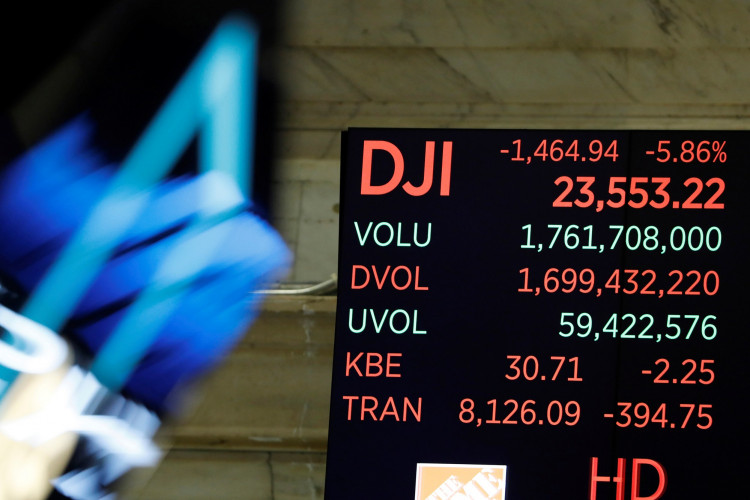A panel of economists affirms the global economy is already in a recession due to the staggering and unprecedented destruction of demand, supply and jobs by the COVID-19 pandemic.
More than three-quarters -- or 31 of 41 -- of economists in the Americas and Europe polled this week by Reuters said today's global economic expansion has ended quite abruptly, and the COVID-19 pandemic is to blame. The poll results were published Thursday. The global economy is forecast to expand 1.6% this year, about half the 3.1% predicted in the January poll, and the weakest since the Great Recession of 2008. Forecasts for 2020 global GDP ranged from -2.0% to +2.7%.
"Last week we concluded that the COVID-19 shock would produce a global recession as nearly all of the world contracts over the three months between February and April," said Bruce Kasman, head of global economic research at JP Morgan. "There is no longer doubt that the longest global expansion on record will end this quarter. The key outlook issue now is gauging the depth and the duration of the 2020 recession."
The economists agree the fast-changing news on COVID-19 has triggered what's called "forecast leap frogging," with forecasts repeatedly being lowered. Among the world's three top economies, the U.S. and the Euro area will see negative growth. On the other hand, China's growth is expected to improve by a scant 1.5%.
"Our first piece on the virus shock was titled 'bad or worse'; now we amend that to 'really bad or much worse.' We now expect COVID-19 to cause a global recession in 2020, of similar magnitude to the recessions of 1982 and 2009," said Ethan Harris, head of global economics at Bank of America.
Goldman Sachs said with cases of COVID-19 moving higher, disruptions to the global economy are increasing. It's slashed its global GDP growth forecast to 1.25% for the year, which is less severe than the deep recessions of 1981 to 1982 and the Great Recession of 2008, but worse than the mild recessions of 1991 and 2001.
The panel of economists now expect recessions in Europe, Japan, Canada and possibly the United States. It said the U.S. economy will almost certainly enter a recession this year, "if it is not in one already."
Pacific Investment Management Company (PIMCO) said the U.S. economy is going to have a shock from COVID-19. It argues there's still a lot of uncertainty around the size and the depth and the prolonged period of the shock.
"We're still getting our heads wrapped around that. We think it's quite likely that the U.S. has a small technical recession this year," said PIMCO North American economist Tiffany Wilding.
Economists have been constantly slashing their growth forecasts for China. The economic damage to China's huge economy due to the pandemic is predicted to also hit other major Asian economies.
Japan's economy, which shrank sharply toward the end of 2019, is now expected to grow only 0.1% in the new fiscal year beginning April, down from 0.5% projected in February.
The risk of a Euro zone recession doubled in a poll taken earlier this month. The British economy is expected to grow by only 0.1% this quarter and contract 0.3% in Q2, a sharp reduction from the 0.3% expansion expected before for both the quarters in the previous poll.
In a worst case scenario, the British economy is forecast to fall.0% in Q2 and by 0.7% in 2020. Some forecasts are as low as -5.0% and -3.0%, respectively. No economist expects growth in either period in the worst case.






